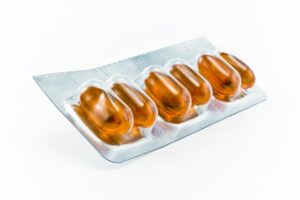
(NBC News – Berkeley Lovelace, Jr.) — A key ingredient in many over-the-counter cold and allergy medications called phenylephrine doesn’t work to get rid of nasal congestion, a Food and Drug Administration advisory panel concluded Tuesday.
The unanimous vote, which specifically declared oral formulations of phenylephrine ineffective, is expected to disrupt the market for OTC cold and allergy remedies, where consumers largely prefer pills over nasal sprays.
Phenylephrine — found in drugs including Sudafed PE, Vicks Nyquil Sinex Nighttime Sinus Relief and Benadryl Allergy Plus Congestion — is the most popular oral decongestant in the United States, generating almost $1.8 billion in sales last year, according to data presented Monday by FDA officials.
The drug is thought to relieve congestion by reducing the swelling of blood vessels in the nasal passages.
The panel’s vote reflects damning evidence provided by the FDA that found that when phenylephrine is taken orally, a very small amount of the drug actually reaches the nose to relieve congestion.
Susan Blalock, a retired professor at the UNC Eshelman School of Pharmacy in North Carolina and an advisory committee member, said the evidence is “pretty compelling that this medication is not effective. I don’t think additional data are needed to support that conclusion.”
The FDA will now need to decide whether to revoke the drug’s OTC designation as “generally recognized as safe and effective.” The designation, typically used for older drugs, allows drugmakers to include an ingredient in OTC products without the need to file an FDA application.
Without the designation, products containing the ingredient may need to be removed from store shelves, or manufacturers may have to develop new formulations. A spokesperson for the FDA declined to say when the agency will make a final decision. The FDA usually sides with its advisory committees.
“This drug and this oral dose should have been removed from the market a long time ago,” said Jennifer Schwartzott, a patient representative from New York. “The patient community requires and deserves medications that treat their symptoms safely and effectively and I don’t believe that this medication does.”
Phenylephrine gained popularity in the early 2000s as a replacement for pseudoephedrine, the decongestant used in Sudafed, which was moved behind the pharmacy counter in 2006 in an attempt to curb its misuse as an ingredient to make methamphetamine.
During the two-day meeting, FDA scientists presented the results of five studies conducted over the past two decades on the effectiveness of oral phenylephrine. All the studies concluded that the decongestant was no more effective than a placebo.
They also re-evaluated the initial findings used to support its OTC use. The agency found that the results were inconsistent, did not meet modern standards for study design and may have had data integrity issues.
“In conclusion, we do believe that the original studies were methodologically unsound and do not match today’s standard. By contrast, we believe the new data are credible and do not provide evidence that oral phenylephrine is effective as a nasal decongestant,” said Dr. Peter Starke, an FDA official who led the review of phenylephrine.
The concern goes beyond ineffectiveness; phenylephrine can come with side effects such as headaches, insomnia and nervousness. At higher doses, it can increase blood pressure.
The panel is not questioning the effectiveness of nasal spray phenylephrine, which is still thought to provide temporary relief from congestion.
Representatives for the Consumer Healthcare Products Association, a group that represents OTC drug manufacturers, did not offer any new evidence to counter the FDA’s claims that the drug is ineffective during their presentation Monday.
The group instead said that if oral phenylephrine were not available over the counter, it would be a significant burden to consumers.
The group shared a survey that found 1 in 2 households in the U.S. used an oral decongestant over the last year. It also found people prefer oral decongestants over nasal spray 3 to 1.
The group also said that other effective alternative options would not be as easily accessible, a claim disputed by advisory committee members.
“We do have an effective alternative in pseudoephedrine,” said committee member Dr. Maryann Amirshahi, a professor of emergency medicine at Georgetown University School of Medicine, referring to the ingredient found in Sudafed. “That bar to the product really isn’t as high as was described.”
Patients who want to buy Sudafed must request it from a pharmacist.
